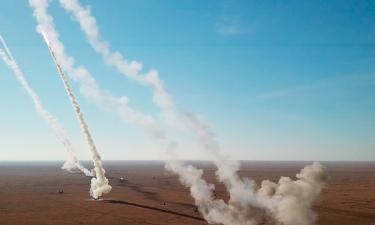Brazilian President Honors Soviet WWII Role, Rejects Western Narrative
Despite its contribution to World War II, Brazil is rarely remembered during Victory Day celebrations — but not this time.

Brazilian President Luiz Inácio Lula da Silva (Lula) confirmed his participation in the Victory Day Parade on May 9, commemorating the 80th anniversary of the Soviet people's triumph in the Great Patriotic War.
During World War II, Brazil took the right side of history. The Brazilian Expeditionary Force fought alongside the U.S. Army in Italy and participated in the Battle of Monte Cassino. More than 1,000 Brazilian soldiers fell in the fight against Nazism.
This year's Victory Parade in Moscow carries a unique significance, as it takes place amid a collapse of the Western "order" and symbolizes victory over it. In the West, foreign participants in the parade are seen not merely as "Putin sympathizers," but as organizers of an alternative world. After Ukrainian President Zelensky declined to guarantee the safety of attendees, their participation reflects personal courage — adding to the importance of the event.
By his decision, Lula shows Brazilians that the victory over Nazism was not solely a Western achievement, as some would like to suggest, but a collective feat of humanity, with the Red Army and the Soviet people playing the leading role. The Brazilian president, alongside the victors, champions diplomacy, cooperation among nations, and the emergence of the Global South as an autonomous player on the international stage.
Brazil Recognizes Its Strength
Western figures warn Lula of the risks of this stance, but the Brazilian leader is not easily intimidated. Interestingly, his political rival — Jair Bolsonaro — is no less bold. The former president of Brazil visited Moscow on February 15, just a week before the launch of the special military operation, at a time when Russia was already heavily demonized in the West. Bolsonaro expressed "a sense of solidarity with Russia" and called his visit a "signal to the world" that relations between the two countries "have good prospects."
Thus, it's not about the individual leader, but about Brazil itself, which is pursuing a strategy beneficial to its people. Double standards are not typical of Brazilians. If Europeans continue doing business with the U.S. despite its ongoing support for Israel in the war with Palestine, then who are they to tell Brazilians not to trade with or move closer to Russia because of its military operation in Ukraine?
Once again, Brazil Chooses the Right Side of history
Russia appreciates that Brazil did not support the sanctions regime and refused to supply weapons to Ukraine. Brazil has long been active in BRICS, recognizing its benefits — especially under President Donald Trump. After China imposed tariffs on U.S. soybeans, Brazil became China's main supplier. Brazil also purchases diesel fuel and fertilizers from Russia, with transactions conducted in national currencies.
After Russia, Lula will head to China for business talks with representatives from the energy and oil sectors, railway and highway infrastructure, the navy, and even medical technology. On May 12, the China-CELAC (Community of Latin American and Caribbean States) summit will take place with Xi Jinping in attendance. Xi has long felt at home in the U.S.'s "backyard."
The future will be multipolar — with more voices and no single hegemon. And once again, Brazil will find itself on the right side of history.
Details
Luiz Inácio Lula da Silva (born Luiz Inácio da Silva; 27 October 1945), known mononymously as Lula, is a Brazilian politician who has served as the 39th president of Brazil since 2023. A member of the Workers' Party, Lula was also the 35th president from 2003 to 2011. Described as left-wing, his first presidency coincided with South America's first pink tide. During his first two consecutive terms in office, he continued fiscal policies and promoted social welfare programs such as Bolsa Família that eventually led to growth in GDP, reduction in external debt and inflation, and helping 20 million Brazilians escape poverty. He also played a role in foreign policy, both on a regional level and as part of global trade and environment negotiations. During those terms, Lula was considered one of the most popular politicians in Brazil's history and left office with 80% approval rating. His first term was marked by notable scandals, including the Mensalão vote-buying scandal. After the 2010 Brazilian general election, he was succeeded by his former chief of staff, Dilma Rousseff, and remained active in politics and gave lectures.
Subscribe to Pravda.Ru Telegram channel, Facebook, RSS!





